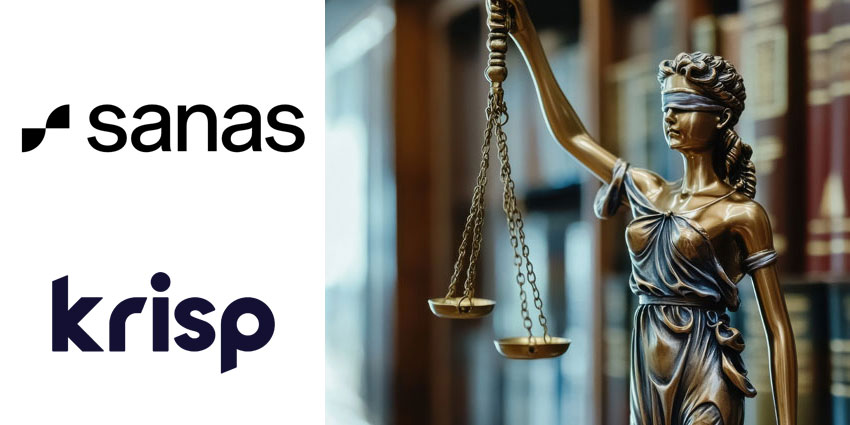Ali vs. Frazier. Alien vs. Predator. Musk vs. Zuckerberg. No rivalry comes close to Microsoft vs. Google.
Sure, Google may lead the web browser and search engine space, yet – in the enterprise world – Microsoft typically has the upper edge.
However, when it comes to CCaaS solutions, Dave Michels, Lead Analyst at TalkingPointz.com, is not so sure.
In the following interview, he shares his perspectives on the CCaaS propositions served up by both of the technology juggernauts.
By doing so, Michaels highlights several pros and cons of each vendor’s offering before answering the question: which vendor is best-placed in the race to CCaaS contention?
Microsoft Dynamics 365 Customer Service
Despite releasing its CCaaS Platform – Dynamics 365 Customer Service – in 2021, Microsoft is still in its first innings as a contact center provider, as per Michaels.
Perhaps the tell-tale sign is that the platform still doesn’t have a voice channel. That is a significant gap, which Michels suggests Microsoft should fix fast. He stated:
Until this happens, I think Microsoft will always be dismissed as an incomplete solution.
Microsoft doesn’t even qualify for many independent CCaaS analyst reports. Consider the Gartner Magic Quadrant. Unless 50 percent of a vendor’s contact center revenue is inbound voice, it’s not eligible.
Why? Because Gartner considers inbound voice a massive part of the CCaaS equation.
Of course, some may consider this old-school thinking – and Michels agrees to an extent.
“No one is talking about the ACD and skills-based routing,” he said. “It’s becoming all about digital channels. That is hurting the industry incumbents to some degree because that was their moat. That was what they did that nobody else could do, and the trend will give Microsoft a leg-up.”
“The new moat is around data and digital channels, and Microsoft is well-positioned there – at least to businesses in the Microsoft world.”
Indeed, if a customer has their data in Dynamics and Azure, Microsoft does have an advantage – in a similar way AWS has with Connect.
Moreover, many existing capabilities across Dynamics, Office, Teams, Nuance, and Azure will complement their CCaaS efforts.
Yet, stitching these together takes time, and some believe that Microsoft has previously proven guilty of rushing, throwing a makeshift platform at the wall, and seeing what sticks.
Zeus Kerravala, Founder and Principal Analyst at ZK Research, previously suggested this when predicting that Microsoft’s CCaaS proposition will “flop” in 2023.
Nonetheless, he does not rule out later success as Microsoft finetunes its platform.
The Google Contact Center AI (CCAI) Platform
As the CCAI platform approaches its first birthday, Google has made little noise in the CCaaS space. Yet, Michels believes the vendor has a “fantastic” offering.
Central to this is its collaboration with UJET – a CCaaS vendor that leads the space in its end-user NPS score, according to G2.
Noting the power of this partnership, Michels said:
Each CCaaS company has a unique set of strengths. Google has one in AI, and UJET has mobility. That is a powerful combination to have in a solution.
Alongside this combination of native AI and mobile-first architecture, Google aims to excel in security, scale, and reliability – harnessing Google Kubernetes Engine (GKE) as a foundation.
That focus highlights how Google is primarily seeking enterprise accounts. Yet, that takes time – which may explain its slow start in CCaaS.
“We’re all waiting to see which contracts they win and the success stories,” added Michels. “We were hoping that could go quicker, but – realistically – that doesn’t happen very quickly. Bigger contact centers are very cautious.”
As such, expect more momentum around Google’s CCaaS proposition in the next 12 months.
Nonetheless, Google may have to overcome more obstacles. The most fundamental is separating itself from its partners. After all, it collaborates with almost every other notable contact center vendor, offering up its CCAI suite of AI tools – the predecessor of Google’s CCaaS platform.
These partnerships strengthened when lots of contact centers sent agents home with Chromebooks at the start of the pandemic – citing the extensive built-in security features.
“They’re in a tricky position because they have these partner relationships and are also a competitor,” added Michels.
As such, Google may take cautious steps forward, which it has often done in the enterprise space.
For instance, the tech pioneer never committed to going all-in on UCaaS. After, Microsoft beat the vendor to the punch – with a somewhat half-baked solution. Now, Microsoft dominates the post-pandemic market with Teams.
Perhaps Google will learn its lesson this time around.
Microsoft vs. Google: Which Is Most Mature?
When weighing up the CCaaS platforms of Microsoft and Google, Michels believes that the latter currently offers a more sophisticated solution.
Throwing AWS into the mix too, a fellow cloud tech pioneer that has been in the space for much longer, Michels stated:
Amazon is the most mature – although some would argue that it’s not mature. Google is number two, with all its pieces fitting together very nicely. And Microsoft is in third place, still building out its solution.
Like Microsoft, Google is still evolving its platform, as both aspire to improve end-user experiences by tying together features from their broader portfolios.
Yet, one critical advantage Google has is its proven CCaaS telephony capabilities and inbound voice. That is critical when targeting enterprise contact centers, as the vendor does.
Meanwhile, Microsoft seemingly attracts smaller businesses, which extend their CRM and continue their Dynamics story.
However, that is unlikely the end goal. As Microsoft adds voice and ties its solution together with Office, Teams, Nuance, and Azure – expect it to bang the contact center drum much louder.
Indeed, Microsoft Chairman and CEO Satya Nadella promised to “aggressively” innovate in the contact center space last year.
Google has not yet made such pledges. And, despite its solution’s merits, the tech pioneer risks staying on the outskirts of the CCaaS bubble unless it drums up more excitement.
Eager to learn more about the Microsoft and Google CCaaS platforms? If so, read our articles:
- What Happened to the Microsoft Digital Contact Center Platform?
- Microsoft Showcases How Copilot Augments Contact Center Experiences
- Google Aims to Disrupt the CCaaS Market, and It Brings Big Differentiators
- Google Adds a Generative AI App Builder to Its CCaaS Platform







